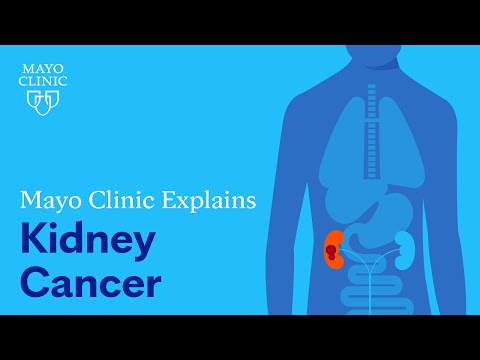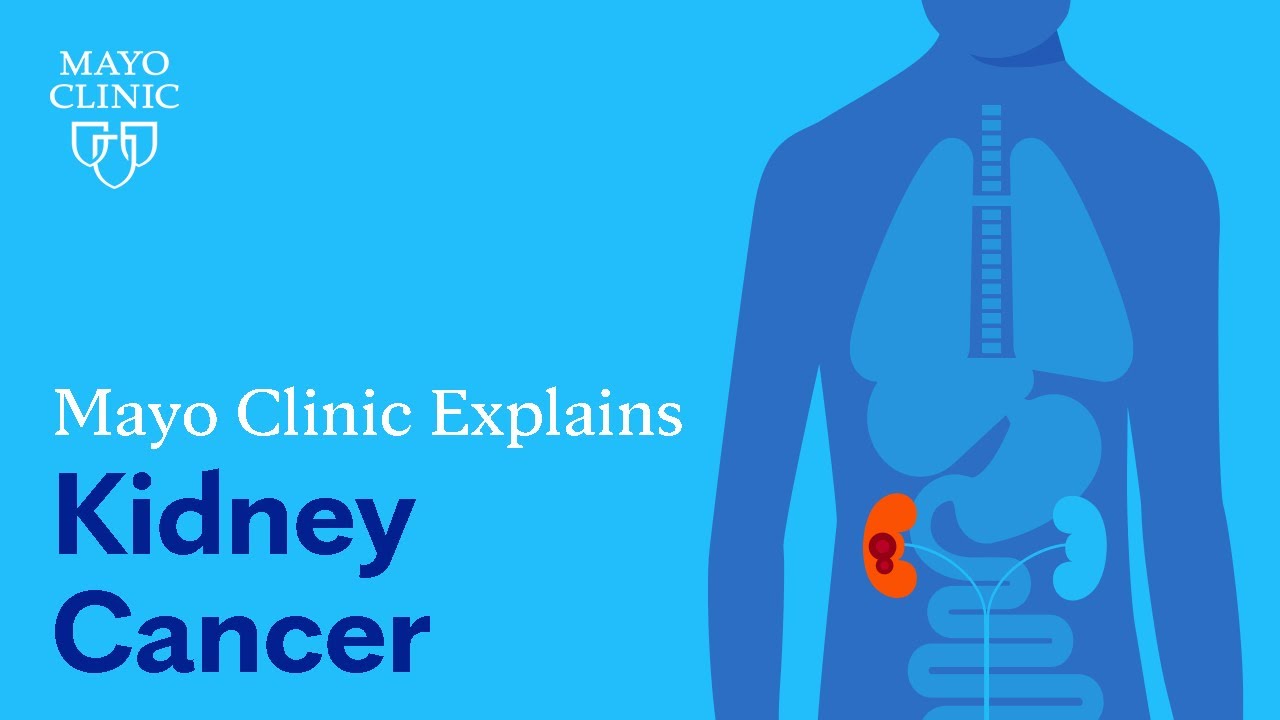Kidney cancer is a captivating and complex disease that demands our attention. This intriguing condition, also known as renal cell carcinoma, is a battle fought within the depths of our bodies. Kidney cancer is not just a medical term; it represents a puzzle waiting to be solved. With its enigmatic nature, it forces us to delve into the depths of our understanding, challenging us to unlock its mysteries. The kidney, an organ responsible for filtering waste and producing urine, becomes the battleground for this silent assailant. The cancer cells, cunning and relentless, multiply and invade the surrounding tissues, jeopardizing the delicate balance within our bodies. As we explore this ailment further, we uncover the intricate interplay of genetic mutations, environmental factors, and lifestyle choices that contribute to its development. Understanding the risk factors and symptoms associated with kidney cancer is not only fascinating but also crucial for early detection and effective treatment. By unraveling the secrets of this disease, we can pave the way for groundbreaking research, innovative treatments, and, ultimately, improved outcomes for those affected. Join us on this captivating journey as we strive to conquer kidney cancer and bring hope to those grappling with this formidable foe.

Understanding Kidney Cancer
| Key Information | Details |
|---|---|
| Definition | Kidney cancer, medically known as renal cell carcinoma (RCC), is a malignant tumor that originates in the cells lining the small tubes of the kidney. |
| Prevalence | Kidney cancer accounts for approximately 3% of all adult malignancies, with an estimated 73,750 new cases diagnosed in the United States alone in 2020. |
| Risk Factors | Common risk factors for kidney cancer include smoking, obesity, hypertension, family history, and certain genetic disorders such as von Hippel-Lindau disease. |
| Symptoms | Early-stage kidney cancer often remains asymptomatic, but as the disease progresses, common symptoms may include blood in the urine (hematuria), persistent back pain, weight loss, fatigue, and unexplained fever. |
| Diagnosis | Diagnosing kidney cancer typically involves a combination of medical imaging tests, such as computed tomography (CT) scans and magnetic resonance imaging (MRI), along with a biopsy to confirm the presence of cancerous cells. |
| Treatment | Treatment options for kidney cancer vary depending on the stage and extent of the disease, but may include surgery (partial or total nephrectomy), targeted therapy, immunotherapy, radiation therapy, or a combination of these approaches. |
| Prognosis | Advanced-stage kidney cancer has a generally poor prognosis, with a five-year survival rate of around 12%. However, early detection and treatment significantly improve the chances of successful outcomes and long-term survival. |
Title: Unmasking the Silent Menace: Mayo Clinic Decodes Kidney Cancer Renowned medical experts at the Mayo Clinic unravel the enigmatic nature of kidney cancer, shedding light on this stealthy disease that often lurks undetected.
Understanding Kidney Cancer: Causes, Symptoms, and Treatment
Kidney cancer is a serious medical condition that affects thousands of individuals worldwide. It occurs when abnormal cells in the kidneys grow and multiply uncontrollably, forming a tumor. As with any type of cancer, early detection and prompt treatment are crucial for a successful outcome. This informative article aims to provide a comprehensive overview of kidney cancer, including its causes, symptoms, and available treatments.
Causes of Kidney Cancer
While the exact cause of kidney cancer is often unknown, several risk factors have been identified:
1. Smoking: Cigarette smoking is a well-established risk factor for kidney cancer. Smokers are twice as likely to develop the disease compared to non-smokers.
2. Obesity: Being overweight or obese increases the risk of developing kidney cancer. This is particularly true for individuals with excess belly fat.
3. High blood pressure: Hypertension, or high blood pressure, is not only a risk factor for heart disease but also for kidney cancer.
4. Family history: A family history of kidney cancer significantly increases an individual’s risk of developing the disease.
5. Workplace exposure: Certain occupations that involve exposure to harmful substances, such as asbestos, cadmium, and organic solvents, have been linked to an increased risk of kidney cancer.
Symptoms of Kidney Cancer
Kidney cancer often presents with the following symptoms:
1. Blood in the urine: Hematuria, or blood in the urine, is one of the most common signs of kidney cancer. The urine may appear pink, red, or dark brown.
2. Lower back pain: Persistent pain in the lower back, just below the ribs, is another common symptom. The pain may be dull and constant or intermittent.
3. Unexplained weight loss: Sudden and unexplained weight loss can be a warning sign of kidney cancer, especially when accompanied by other symptoms.
4. Fatigue: Feeling tired and lacking energy, even after adequate rest, is a common symptom experienced by kidney cancer patients.
5. Swelling: Some individuals with kidney cancer may notice swelling in their ankles and legs due to fluid retention.
Treatment Options for Kidney Cancer
The choice of treatment for kidney cancer depends on various factors, including the stage and extent of the disease:
1. Surgery: Surgery is the primary treatment for kidney cancer and involves the removal of the tumor and surrounding tissue. In some cases, a partial nephrectomy may be performed to remove only the affected part of the kidney.
2. Radiation therapy: Radiation therapy uses high-energy beams to destroy cancer cells. It is often used after surgery to eliminate any remaining cancer cells or in cases where surgery is not feasible.
3. Targeted therapy: Targeted therapy involves the use of drugs that specifically target cancer cells, inhibiting their growth and spread. These medications may be used to treat advanced kidney cancer.
4. Immunotherapy: Immunotherapy helps stimulate the body’s immune system to recognize and attack cancer cells. It has shown promising results in the treatment of advanced kidney cancer.
5. Clinical trials: Participation in clinical trials allows patients to access innovative treatments that are still being studied. These trials contribute to advancements in kidney cancer treatment.
Prevention and Early Detection
While kidney cancer may not always be preventable, adopting a healthy lifestyle can reduce the risk:
1. Quit smoking: If you smoke, quitting is the best way to lower your risk of kidney cancer and other serious health conditions.
2. Maintain a healthy weight: Regular exercise and a balanced diet can help maintain a healthy weight and reduce the risk of kidney cancer.
3. Control blood pressure: Managing hypertension through lifestyle modifications and medications can significantly reduce the risk of kidney cancer.
4. Stay hydrated: Drinking an adequate amount of water helps keep the kidneys healthy and may reduce the risk of kidney cancer.
5. Regular check-ups: Routine check-ups with a healthcare professional can help detect kidney cancer at an early stage when treatment is more effective.
In conclusion, kidney cancer is a serious disease that requires early detection and prompt treatment. Understanding the causes, symptoms, and available treatment options is crucial for individuals at risk or those experiencing related symptoms. By adopting a healthy lifestyle and seeking regular medical care, individuals can reduce their risk of kidney cancer and improve their chances of successful treatment.

